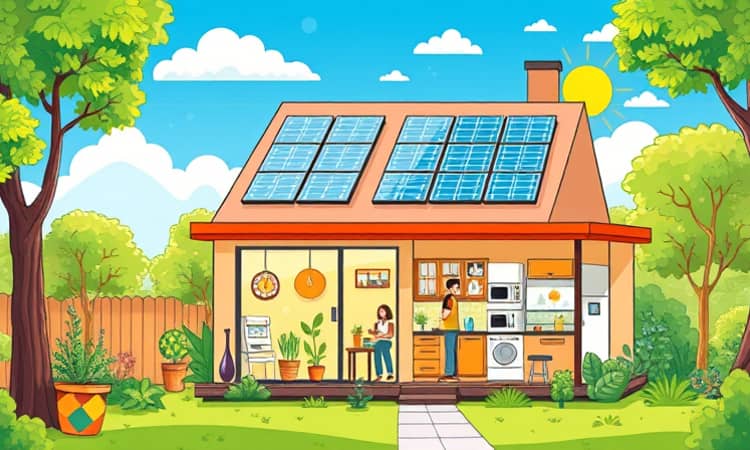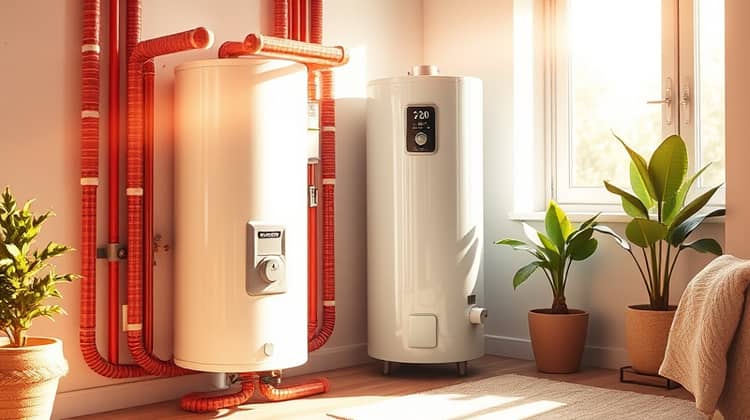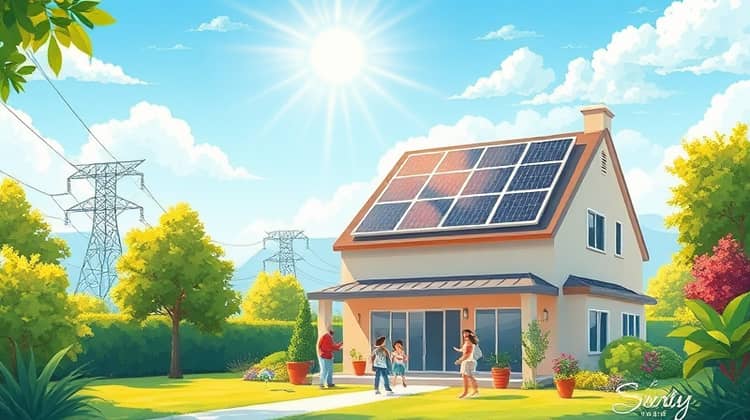Save on Utility Bills: 9 Smart Tips to Cut Costs

Utility bills can eat into your budget significantly, making it crucial to find smart ways to reduce these costs. Saving money on utilities not only relieves financial stress, but it also contributes to a sustainable lifestyle by reducing your environmental footprint.
Here are nine tips to help you cut costs on your utility bills without sacrificing comfort or convenience. Implement these strategies to see tangible savings on your monthly statements.
1. Seal the Leaks

One of the easiest and most effective ways to save on your utility bills is to seal any leaks around your home. Drafty windows and doors can lead to significant energy loss, forcing your heating or cooling system to work overtime.
Insulating your home not only enhances energy efficiency but also creates a more comfortable environment year-round. It's a small investment that can yield substantial savings on your bills.
- Check for drafts around windows and doors.
- Use weatherstripping to seal gaps.
- Insulate your attic and crawl spaces.
- Seal cracks and openings in your walls and foundations.
By taking the time to seal these leaks, you can improve your home’s energy efficiency and reduce unnecessary utility expenses.
2. Upgrade Your Thermostat

An outdated thermostat can be costing you more than you realize. By upgrading to a programmable or smart thermostat, you can optimize energy usage based on your schedule and preferences.
These devices can learn your habits and adjust accordingly, ensuring your heating and cooling systems are running efficiently and only when needed.
- Consider installing a programmable thermostat.
- Ensure your thermostat is placed in an ideal location away from direct sunlight.
- Regularly check for the latest energy-efficient thermostat models.
The initial investment in a new thermostat can quickly pay for itself through lower energy bills, making it a smart upgrade for any homeowner.
3. Optimize Your Water Heater

Water heaters can consume a considerable amount of energy, so optimizing their efficiency is essential. Start by setting your water heater temperature to 120 degrees Fahrenheit to prevent overheating and reduce energy usage.
Additionally, consider insulating your water heater and the first few feet of hot water pipes connected to it to minimize energy loss.
- Set your water heater to 120 degrees Fahrenheit.
- Insulate your water heater and pipes.
- Flushing the tank annually helps maintain efficiency.
Making these adjustments can not only cut costs but also prolong the lifespan of your water heater.
4. Switch to LED Lighting

Traditional incandescent bulbs consume significantly more energy than LED options. Switching to LED lighting can substantially decrease your electricity costs while providing better light quality.
LED lights use up to 80% less energy than their incandescent counterparts, and their lifespan is much longer, further enhancing savings over time.
- Replace all incandescent bulbs with LED alternatives.
- Use dimmer switches with LED compatible fixtures.
- Consider motion sensors in less frequently used areas.
Making the switch to LED lighting is a straightforward way to immediately begin saving on your utility bills.
5. Be Mindful of Your Appliances

The appliances in your home can significantly impact your utility bills, especially older models. It’s essential to be mindful of how and when you use these appliances to maximize efficiency.
Keep an eye on the energy ratings of your appliances; aiming for Energy Star-rated devices can yield substantial savings on your utility bills.
- Run the dishwasher and laundry machines with full loads.
- Avoid using appliances during peak energy hours.
- Opt for air-drying clothes when possible.
Being conscious of appliance use can lead to noticeable reductions in your utility expenses over time.
6. Unplug and Power Down

Phantom loads, the energy that electronic devices consume while they are turned off but still plugged in, can quietly increase your utility bills. To combat this, make it a habit to unplug devices when not in use.
Consider using power strips to easily turn off multiple devices at once, helping you to eliminate these hidden costs.
- Unplug chargers when not in use.
- Use smart strips that can automatically shut off devices.
- Turn off lights when leaving a room.
By being proactive about unplugging and powering down, you can significantly diminish phantom load energy consumption.
7. Use Fans Wisely

Ceiling fans and portable fans can help circulate air effectively, allowing you to feel cooler while keeping your air conditioning at a higher temperature. This simple adjustment can lead to substantial energy savings.
Using fans strategically in conjunction with your cooling system can create a more comfortable environment without over-relying on air conditioning.
- Use ceiling fans to circulate air in summer and winter.
- Keep fans on when you’re in the room but off when the room is empty.
- Choose the correct fan speed for your comfort level.
Utilizing fans efficiently can enhance your comfort while keeping energy costs in check.
8. Conserve Water

Water usage is a significant contributor to your utility bills, and being mindful of water conservation is essential for reducing costs. Simple changes in your habits can make a big difference in overall usage.
Incorporating water-saving fixtures and practices can also lower not only your water bill but also the energy costs associated with heating water.
- Fix any leaks promptly to prevent water waste.
- Install low-flow showerheads and faucets.
- Collect rainwater for outdoor use.
Conserving water is an effective way to contribute to sustainability, while also saving money in the process.
9. Consider Renewable Energy

Investing in renewable energy solutions, such as solar panels, is becoming increasingly feasible for homeowners. Although the initial cost may be higher, over time, these systems can lead to drastic reductions in your utility bills.
In some cases, homeowners can even sell excess energy back to the grid, further offsetting investment costs and creating a potential income stream.
- Research local incentives and rebates for solar installations.
- Consult with renewable energy specialists for your area.
- Evaluate your home’s energy consumption to determine system size.
Transitioning to renewable energy not only cuts utility expenses but contributes to a cleaner planet by reducing reliance on fossil fuels. The long-term financial and environmental benefits make it a worthwhile consideration.






